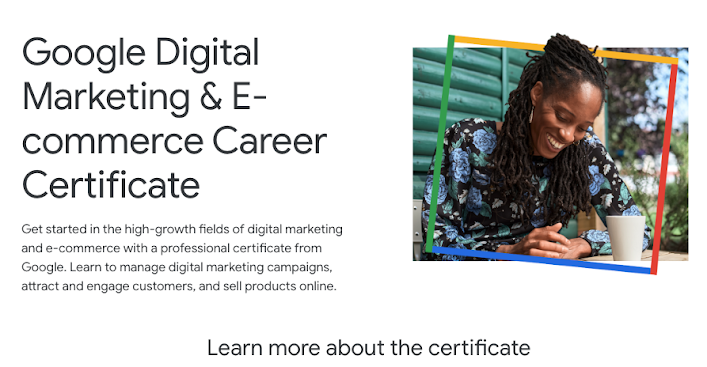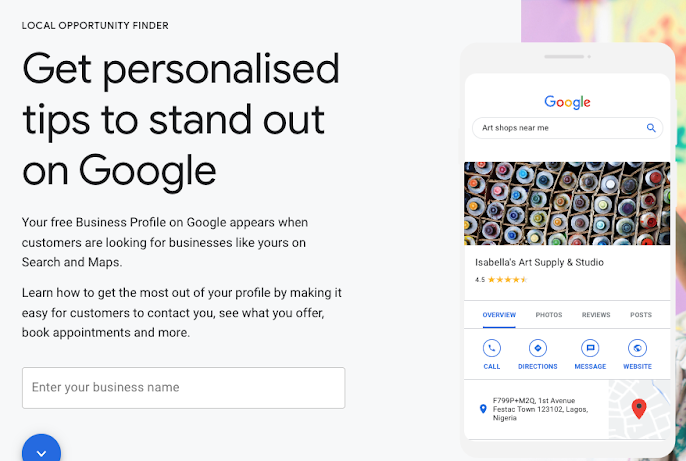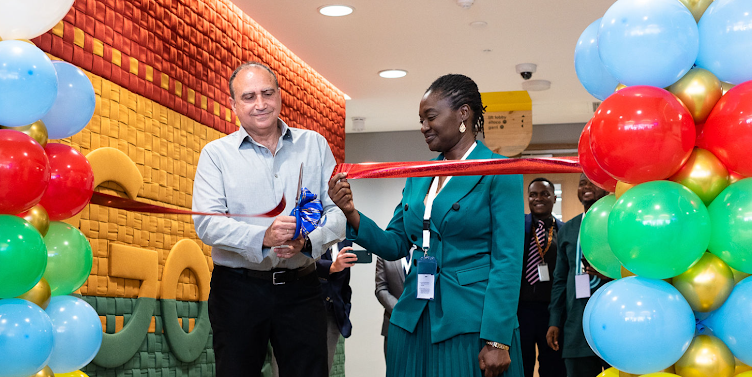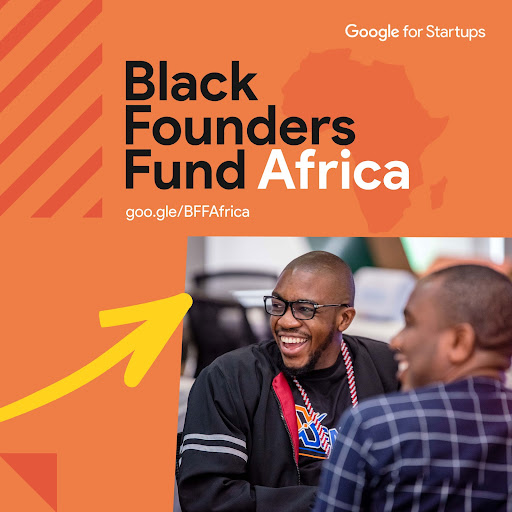As a new content creator discussing spirituality, how has YouTube given you a platform to build your profile?
If I’m honest, I wasn’t always ready to embrace the ‘content creator’ title. My online presence has really been a result of me just speaking my mind because I’m such an opinionated spirit. I already have a devoted following on Instagram but my followers were constantly asking me to jump onto YouTube, so it was a no brainer.
I knew I was onto something after posting my first YouTube video which gained over 20,000 views in less than a week. This was a huge turning point and was really the driving force behind me finally making the leap into becoming a full-fledged content creator. I think people resonated with the video because it gave them a real and personal insight into my spiritual journey. When it comes to talking about African spirituality, I always wanted to challenge what we were taught about traditional religion. It’s important to use my digital platform to have these honest conversations where we can interrogate everything and ask hard questions. That’s why it was critical to enter into a space like YouTube with its huge global reach; especially since I found out that many of the people who enjoy and consume my content live outside of South Africa.
How do you use digital or social platforms to grow your brand and online community?
I like to create a safe space where there’s no judgement as I engage with people from all ages, religions and walks of life. This is super important with an often divisive topic like religion so a friendly and welcoming atmosphere gives my followers the freedom to speak freely. I am always looking for creative ways to connect with my followers so I decided to use Instagram to discuss a particular topic every other week. I use Twitter Spaces and IG Live to directly connect with them in real-time; that helps bring followers to my account frequently. I think it’s that consistency that gives them the reassurance to keep returning for my content and that has really helped grow my following.
Have you used Google’s tools, programmes or training to help your brand grow and be discoverable online?
I’m not really tech-savvy so I’ve been on a learning curve with YouTube especially, learning how to use the platform effectively to grow. After seeing the overnight success of the first video, I realised the importance of developing my video skills so I can have a more professional and slick production. I figured the first video performed so well without any planning, so imagine the reach I’ll have once I actually have a YouTube strategy! I will definitely take advantage of the YouTube training to structure my videos in a more compelling way and establish my credibility as a content creator to continue growing.
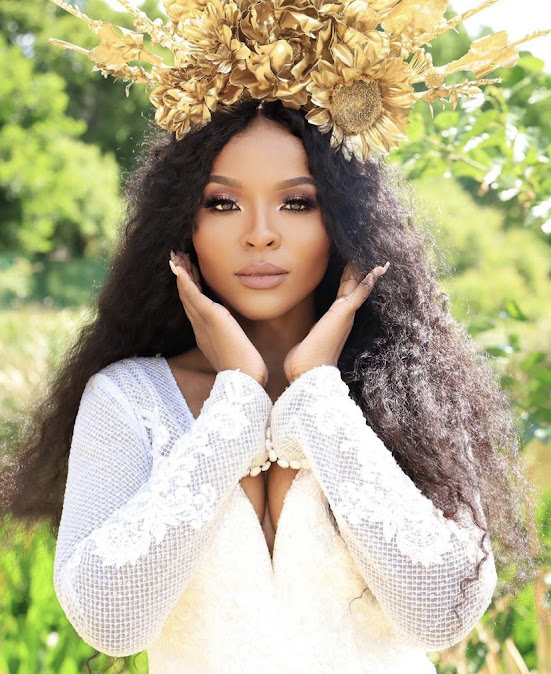
Have you faced any resistance/scepticism when sharing your faith/spirituality?
I was always aware of the trolling that I would receive online and that is just a negative by-product of becoming a content creator. Instead of rising to the bait, I use these as teachable moments where I can confront them and challenge their criticism, whilst fostering more open debate. I respect everyone's religion and I believe we can all take something from each one. I think all religious communities can co-exist and that's why I thrive at being a teacher because I don't belong to any one religious group.
Describe how your friends have responded to your calling as a spiritual leader?
In South Africa, we all come from different tribes with different beliefs and my friendship group is quite mixed. Some are traditional Christians, whilst others are agnostic or atheists. Since I grew up Catholic, many of my Christian friends didn’t
quite understand my spiritual calling. The great thing is that now I’ve been doing this work for a few years so they’ve come to accept my spirituality and we can have heated debates where we just agree to disagree and then move on.
Explain what you mean when you got your calling and what you were called to do?
I strongly believe that at least one person from every family is chosen to lead with a specific gift from the lineages that we come from. A calling is a gift that is passed down from different generations and becomes a duty for that person to have the strength & knowledge to take it forward to the generations that follow and it is not solely restricted to being a healer. A calling in my opinion varies from being a healer, farmer, businessman / woman etc and they all come from our ancestors and what they left us with so that we can carry the gifts down to the generations that follow. All gifts are different and my calling is to be “umthandazi” , (clairvoyant or messenger through the use of water and prayer) because my family is made up of sangomas, herbalists and pastors.
Describe what a Sangoma is for those not native to South Africa?
Through reading and learning, I’ve learnt that a sangoma according to Bionity and Wikipedia is “A practitioner of herbal medicine, divination and counselling in traditional societies of Southern Africa. They perform a holistic and symbolic form of healing, with the use of bones and medicine, embedded in the beliefs of their culture that ancestors in the afterlife guide and protect the living.”
I am inspired by many Sangoma’s as they are highly revered in South Africa, and the community has worked hard in preserving and protecting our culture.
How is a Sangoma different from a medium or clairvoyant?
In my opinion, it is all interlinked and can sometimes cause confusion. It all depends on what you are called for and how you are required to practice. Some people work directly with a creator or higher power such as God, some people work with their ancestors together with God. Noting that people have different creators and gods. So, higher powers aren't the same in that some have strict religious practice, while others are led by “the universe” and others are led by “umvelinqangi”, who is also the creator for many in the black society.
What tells us apart, is the medium in which we practise from, however, we all have a higher power.
Clairvoyant - has an ability to see future events and how they correlate with the past or present. They may have different mediums of where they receive their information from, in my case, my base will always be my ancestors who show me visions for people. I use water and a white candle to receive the visions. Whereas for others, their base may be statues, cards, crystals, memos etc. A clairvoyant may also be on the line of what we would call a psychic.
Medium - is able to connect with a deceased person directly or on a one-on-one basis where they can have a full-on conversation with one specific deceased human.
The difference? While a medium can have a conversation with a deceased person one-on-one, others (like me) can only communicate with a tribe through visions. Which is not the same thing - there is a fine line because, for example, I don’t have abilities like “Hollywood Medium, Tyler Henry”. I can only tell you what will happen in the future and can also connect past events with present journeys. I work completely differently, therefore, I am not a medium. While they interlink, I would say my strength is in clairvoyance. I also can not heal through bones and medicine, therefore I am not a sangoma.
This may all seem as though they are all the same thing, but it all varies into so many different practices such as those who are prophets, izanusi, herbalists etc. Our gifts are multi-faceted and they are all separated by the specific calling that each person has. Basically, we are all called for different duties, by different powers and for different purposes, with the aim to be of help to others.
It is important for people to understand their specific callings. I implore individuals to research and learn on each gift because our historical background is a huge masterclass with different positionings and intentions, for different outcomes. You can never have all the answers from one read because one size does not fit all in the class of spirituality. Your family will also have most of the answers that you may require for your specific gifts.
How can one understand their calling? I personally learn from dreams, visions and senses. That’s how I am able to decode and receive messages. By “senses”, I mean that I am able to smell, see, hear or feel things that are about to happen. Whether it be a client coming to my house with a severe leg problem, before I meet them, I will have sharp pains in my leg and will know to discuss that in the session. Sometimes I can smell or hear - for example a car accident (fire, clutch, screeching sounds). It is a very interesting & scary world because you have to learn to discern and help according to what your ancestors show you in those visions.
As a healer or spiritualist, it’s also important to be transparent with what your strengths are so that you don’t present yourself as something you are not and or mislead others.

Do you think African spirituality isn’t given the same visibility as traditional religions like Christianity or Islam?
There’s a common misconception that spirituality on the continent is somehow primitive or uncivilised, so we really need to unpick that colonial narrative. Whilst we have a lot of work to do, there’s small progress being made. For example, the recent winner of Big Brother Mzansi (South Africa), Mphowabadimo, is actually a traditional healer. That on its own is huge and I’m glad she is unapologetic about who she is because she’s an inspiration to our generation. This provided an acceptance as well as an awareness of spirituality and I’m glad we're starting to become more accommodating of different cultures. My hope is that all religions will be given equal visibility. That’s why it’s important for healers to get the support of global brands such as Google, who can promote, celebrate and champion us. I think once people can see that the big brands are taking notice of what healers do, people will really start paying attention. The time for our traditions and cultures to be perceived as ‘taboo’ are over - we are light workers.
How are you challenging the perception of what a spiritual healer looks like?
I certainly don’t fit the “stereotypical” or “prayer warrior” perception of what a spiritual healer looks like. When I started out, I was constantly attacked for my appearance and it created a broader essence of doubt in terms of my credibility. However, I am proud of my look and whether I wear coloured wigs, nails or lashes, I’m still able to resonate with my followers. It’s important for people to see me as more than a healer; I’m an ordinary person with real emotions and desires. My spirituality doesn’t take away from my style or my extravagant nature. When I meet people in person, they always remark that they didn’t expect a healer to be funny or cool. Fortunately, there’s more representation happening right now so I hope I won’t be the exception, but the norm.
How does this work affect your mental health and how do you cope with that?
So I've had to literally give myself breaks to avoid being so overburdened. I know I’m not a superhero so I can’t save everyone, despite wanting to. Religion and spirituality can weigh heavily on our mental health - both physically and mentally. My breaks consist of digital detoxes where I stay off social media and put my goals on ice temporarily to ease some of the pressure. Other times, my Gobela (spiritual teacher), Gogo Nomakhosi, welcomes me into her home so that I can restart and be obedient to the duties that continue to resurface - it’s a constant journey of learning and growing and I am blessed to have a supportive family too.
What would be your advice for young people hoping to engage with spirituality?
We know that there have been huge significant generational shifts and Gen Z is much more likely to question everything rather than follow in blind faith. They are becoming much more open-minded to finding a version of spirituality that works for them and often that means stumbling onto YouTube to find healers like me. I hope I can help them embrace and lead their own spirituality. Everyone is looking for a healer to guide them, but spirituality is not group work, it's about individuality that comes from within and finding your own way. My biggest hope is for us to co-exist because truthfully if we can not be African in Africa, where else are we supposed to be African? Find comfort in your own light - dear African child.
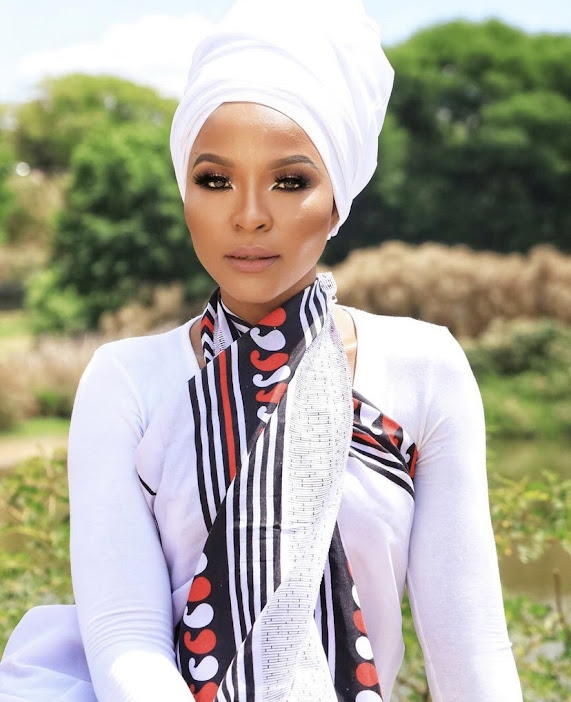

.png)
.png)
.png)
